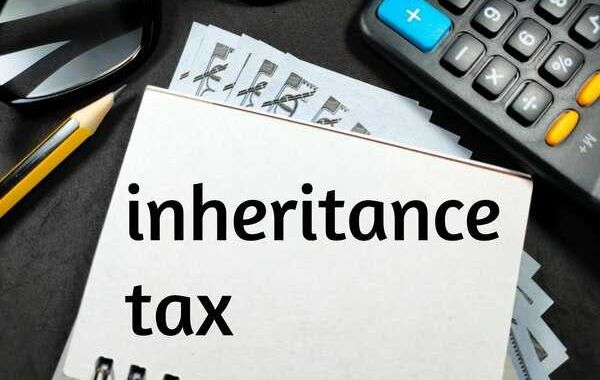Inheritance tax liability should be carefully considered, and proper tax planning should be undertaken by all people with assets in the UK, not just those living there. On death, the UK Inheritance Tax (IHT) is at a rate of 40%. If you want to avoid inheritance tax in the UK, you must know that IHT is a tax on cash, specific gifts, or assets held after someone's death; in the case of the gifts, these had to be made during life (with seven years before death). However, some of the funds can be transferred tax-free. That is named 'tax-free allowance' or 'nil rate band.'
Can You Benefit from Inheritance Tax Liability?
In the UK, each person can benefit from a free tax on legacy of about £325,000, which has not changed since 2010/2011. In the case of a married couple owning a house, this tax-free benefit can be passed on to a surviving spouse, meaning that after their death, the estate will enjoy a benefit of £650,000. People who passed away after 6 April 2017 with an estate worth more than their inheritance tax liability of £325,000 based on the house's value can benefit from a free tax legacy. In the tax year 2020 - 2021, this extra amount is £175,000 per property.
How to Avoid Inheritance Tax
Gifts made more than seven years before death without retaining a benefit (such as continuing to live in an endowed property rent-free) will not be included in the deceased's estate. Any gifts made within seven years will, in most cases, become part of the estate. Specific gift allowances can be used from year to year, where the seven-year rule does not apply. The six key gift options are detailed below. These options can help you avoid inheritance tax in the UK if adequately planned over several years. You should keep a record of all gifts made by will.
- Give money every year - a person can give up to £3,000 yearly. This gift can be for anyone or divided among any number of people.
- Wedding gifts - parents can each give up to £5,000. This allowance for gifts must be made before the ceremony.
- Charitable donations - charitable gifts are free from inheritance tax liability. If at least one-tenth of the net worth (calculated as a percentage of the estate at death) is donated, the government can reduce a person's estate tax rate from 40% to 36%.
- Unlimited small gifts - unlimited gifts of up to £250 each in any tax year can be made as long as they are to different people.
- Contribution to living costs - money used to support an older person, an ex-spouse, and a child under 18 or in full-time education is not considered in the deceased's estate on death, regardless of the amounts paid.
- Payments from surplus income - a person with surplus income should recognize the opportunities this provision offers to avoid inheritance tax in the UK.
To Whom Is the UK Legacy Tax Assigned?
![]()
Legacy rules in the UK differ from where a person is domiciled. They consider a person to have a domicile where he is permanently settled and at home. Therefore, in some jurisdictions, inheritance tax liability is a fact, while in other jurisdictions, taxes may be payable. For UK IHT purposes, living in the UK is divided into three variants: domiciled in the UK, non-UK domicile, and considered domiciled in the UK. Domiciled in the UK – the person's worldwide assets need to be considered for legacy tax whether it has residency or not, and the same goes for non-UK Domiciled.
Considered domiciled in the UK – when a person has lived for more than 15 years (before death). Under UK legacy tax rules, the person had a domicile in the UK. Therefore, he will be subject to legacy tax after he passes away. The rules are slightly different if the individual has met this requirement but is no longer resident at the date of their death, although IHT may still be charged in this case. When a person comes to the UK, depending on all the circumstances, there can be issues that cause a person to become domiciled in the UK.
Tax Planning Opportunities for Non-UK Residents
Remember, once a person lives in the UK for at least 15 years, he will be considered domiciled in the UK; therefore, he cannot avoid inheritance tax. Here is an example of how things go, more specifically. If someone living in Britain for over 15 years since retirement has passed away and decides to leave his fortune to his son, his assets, those from the UK and worldwide, will pay the tax at 40%, an exception being the nil rate. Before this person lived in the UK, he could have made a trust so that his assets outside the UK could benefit from inheritance tax liability.
After this person's death, the trustees could give the assets to his son, obtaining a similar outcome as the will but the transfer of assets with no legacy tax obligations. If the person who inherited all the assets leaves Great Britain, sells everything he has, and all the money gained is in a bank account in the new country he moves to, and in a year, he passes away, things change. As he only left the UK early that year, he is still a resident in the UK.
As he is considered a citizen with a domicile in the UK, he will have to pay the legacy tax regardless of whether he had any assets when he passed away. Therefore, avoiding inheritance tax in the UK will not be possible. Tax in the UK is a very complex subject. Careful consideration should also be given to advice on how best to structure UK asset ownership. UK and non-UK tax residents need guidance on all the regulations in any legacy situation.







